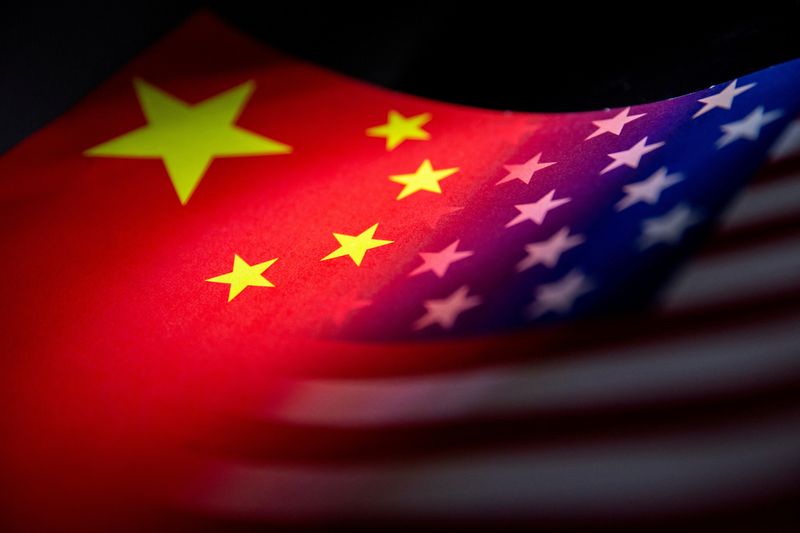China says U.S. must ‘take responsibility’ for breakdown in climate ties
2022.11.03 22:32
[ad_1]

© Reuters. FILE PHOTO: China’s and U.S.’ flags are seen printed on paper in this illustration taken January 27, 2022. REUTERS/Dado Ruvic/Illustration/File Photo
SHANGHAI (Reuters) – Climate change diplomacy between China and the United States cannot be separated from broader political tensions between the two sides, and Washington must take responsibility for the breakdown in talks, China’s foreign ministry said.
Nearly 200 countries are about to gather in Sharm El-Sheikh in Egypt for another round of global climate negotiations, but diplomatic tensions between the two biggest sources of climate-warming greenhouse gas have threatened to overshadow the meeting, known as COP27.
Agreements and joint declarations by Beijing and Washington helped drive through the landmark Paris Agreement in 2015, but China suspended all bilateral discussions in August following the visit by U.S. House of Representatives Speaker Nancy Pelosi to Taiwan, a self-ruled island that China claims.
“China and the United States previously developed good cooperation in the area of climate change, working together to get the Paris Agreement reached and brought into effect,” a foreign ministry spokesperson said in a statement late on Thursday.
“At the same time, China-U.S. climate cooperation cannot be separated from the broad climate of bilateral ties,” the spokesperson added, noting that Pelosi’s “serious breach of Chinese sovereignty” in Taiwan had left China with no choice but to suspend the talks.
“The United States side must take responsibility for this.”
China has not suspended cooperation with other countries, and would continue to support the multilateral climate negotiation process, the spokesperson said, adding that China was “willing to communicate and coordinate with all parties” to ensure COP27 was successful.
Expectations ahead of COP27 were already low amid global concerns about energy supplies brought about by the Russian invasion of Ukraine, and the worsening China-U.S. relationship has driven those expectations even lower, experts said.
“The U.S.-China collaboration on climate commitments is something that has really helped in the past,” said Frank Jotzo, director of the Centre for Climate and Energy Policy at Australian National University.
“It just doesn’t exist any longer, and there’s really not much prospect of it reappearing,” he said at a Thursday briefing.
[ad_2]
Source link








